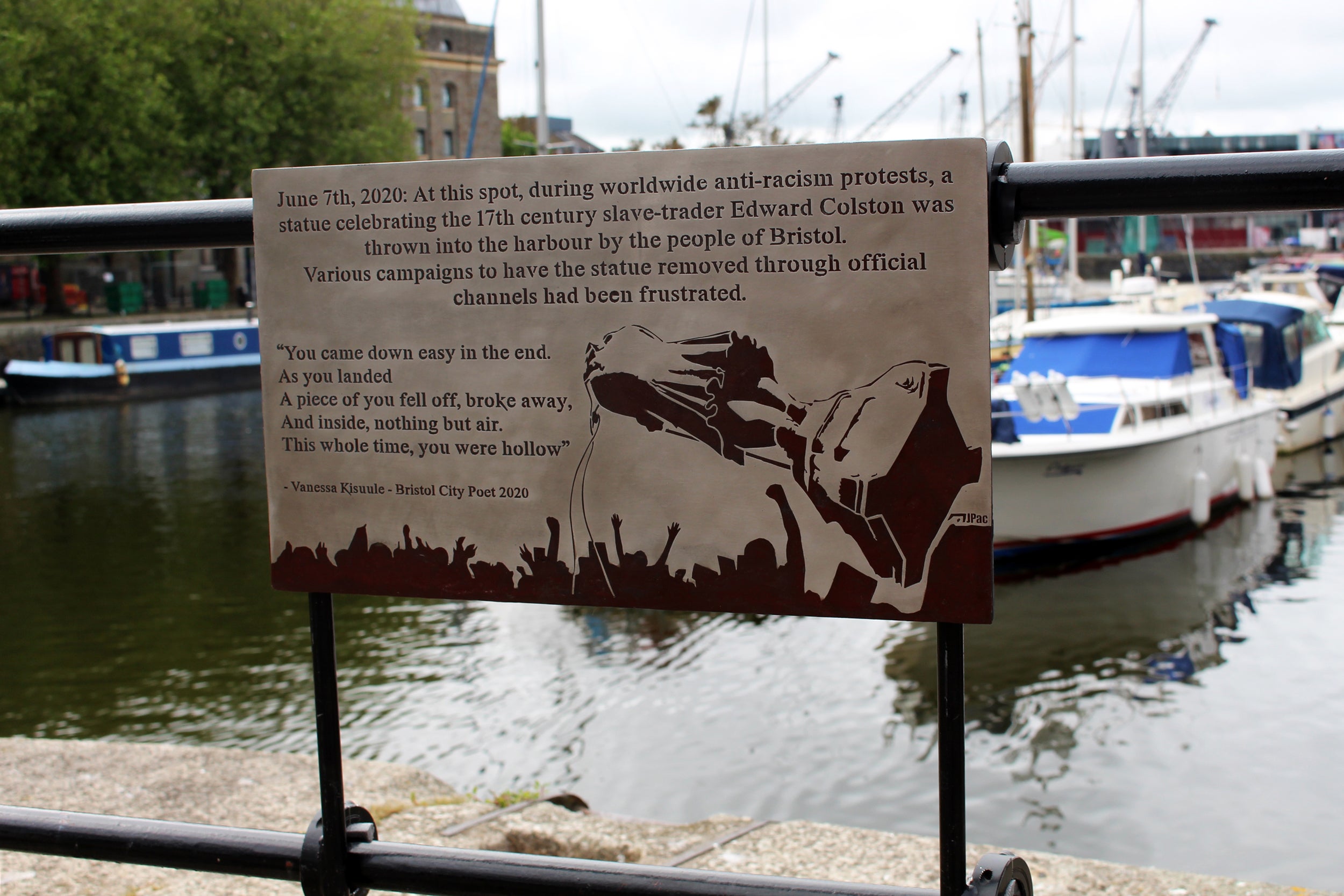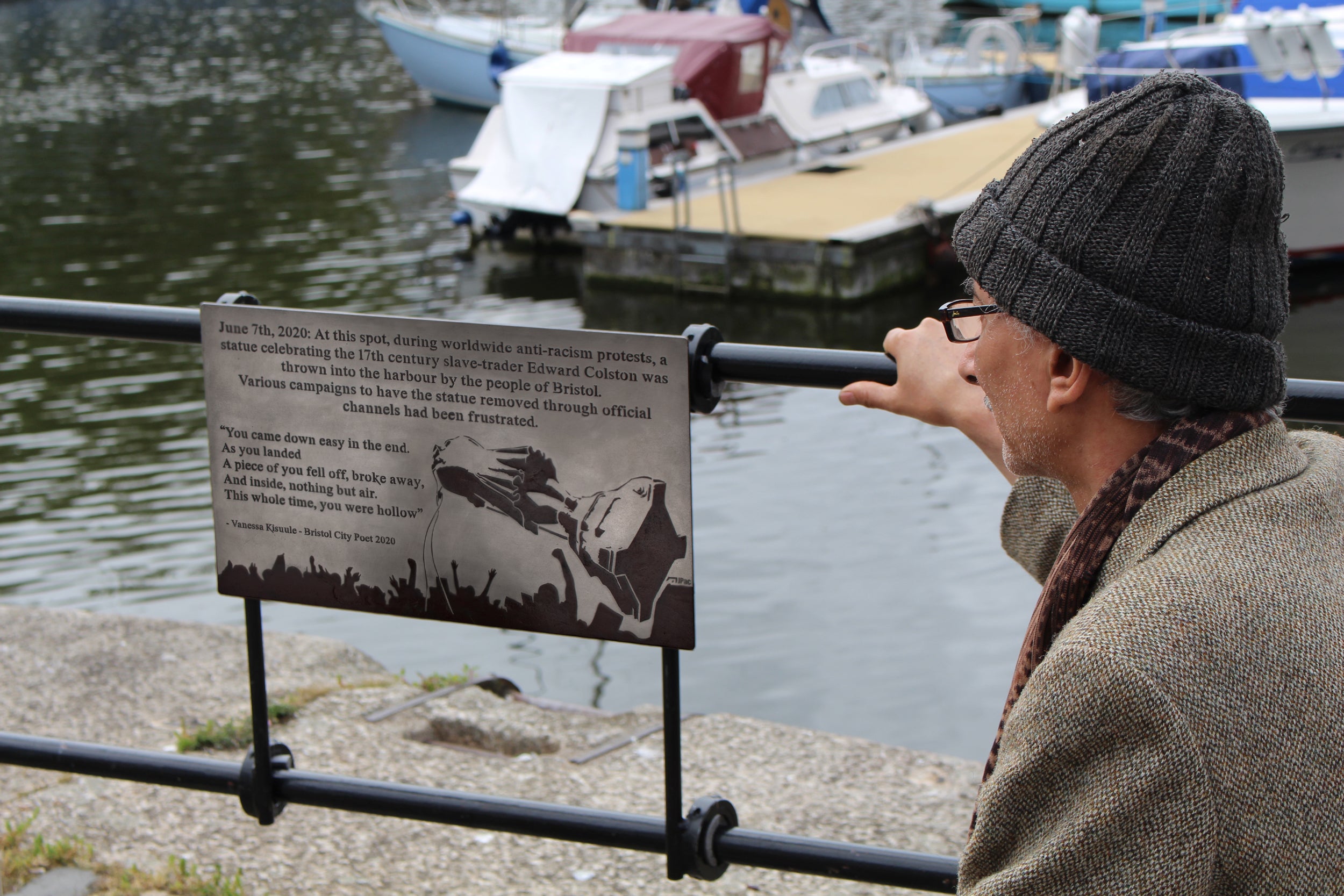‘Guerrilla historians’ erect plaque to commemorate slave trader statue being thrown in river
“We all want a fuller, richer understanding of British history - more history, not less - and we hope this plaque can make a small contribution to that shared goal,” a spokesperson told The Independent.

A plaque has appeared at the spot where the statue of slave trader Edward Colston was thrown into Bristol Harbour, marking the first anniversary of its toppling as part of the global resurgence of the Black Lives Matter movement.
Installed by an anonymous group, the plaque was commissioned by an 18-strong group of self-styled guerilla historians, The Independent can reveal, and designed by Bristol based artist John Packer.
It depicts the moment the statue was pulled from its plinth by anti-racism protesters. On its surface are the words: “At this spot, during world wide anti-racism protests, a statue celebrating the 17th century slave-trader Edward Colston was thrown into the harbour by the people of Bristol.
“Various campaigns to have the statue removed through official channels had been frustrated.”
It also features an abridged version of the poem Hollow by Vanessa Kisuule, Bristol City Poet 2020, who has endorsed the new plaque.

A spokesperson for the historians said: “The toppling of Colston’s statue was a pivotal moment in a global popular uprising, and the enormous symbolic and historical significance of this event reverberated around the world.
“We all want a fuller, richer understanding of British history - more history, not less - and we hope this plaque can make a small contribution to that shared goal.”
The new tribute has received some backlash and demands for its removal, with the Save Our Statues group calling it an ode to “lawless behaviour.”
But the historians dismissed critics as “statue-shaggers” and accused them of protecting “the right to maintain a white supremacist monopoly over which parts of our history are told, and which remain hidden.”

It comes after the Colston statue went on public display last week, still covered in graffiti and damaged from its period underwater.
The display, focusing on the bronze work, is on the same floor as a permanent exhibition at M Shed that details Bristol’s role in the transatlantic slave trade.
Campaigners who want the statue reinstated on its plinth have encouraged supporters to block-book tickets to the museum so that that no one can see it there.
The bronze memorial to the 17th century merchant, which had stood in the city since 1895, was dragged through the city to the harbourside last summer, where it was thrown in the water at Pero’s Bridge, which is named in honour of enslaved man Pero Jones who lived and died in the city.
Join our commenting forum
Join thought-provoking conversations, follow other Independent readers and see their replies
Comments
Bookmark popover
Removed from bookmarks